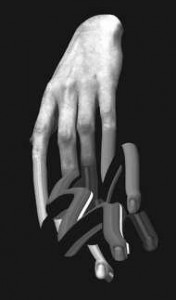
My Boston College colleague Richard Kearney has written a thoughtful piece in the New York Times, “Losing our Touch.” He laments the loss of physicality, of the body, in the collective consciousness of our society.
Are we perhaps entering an age of “excarnation,” where we obsess about the body in increasingly disembodied ways? For if incarnation is the image become flesh, excarnation is flesh become image. Incarnation invests flesh; excarnation divests it.
Among students, sex is increasingly mediated by the virtual world, through online dating or pornography. He traces this tendency from Plato’s disembodied world of forms, and Aristotle’s response, positing that touch is the most universal human sense. Plato won the day in Western philosophy; “I see” is now our way of saying “I understand” (rather than, say “I feel”).
Something is lost here, Kearney writes.
Full humanity requires the ability to sense and be sensed in turn: the power, as Shakespeare said, to “feel what wretches feel” — or, one might also add, what artists, cooks, musicians and lovers feel. We need to find our way in a tactile world again.
If education is only about “taking a look,” (as Kant might have it), then education is disembodied. Minds can study during the week; bodies can party on the weekend (you know, that period from Wednesday evening to late Monday afternoon). What will a robust education of mens sana in corpore sano really look like in a world of iCloud and a nearly completed Circle?











